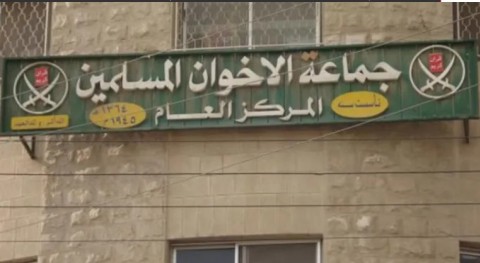By Dr. Shehab Al Makahleh
At a critical juncture in Middle Eastern history, as the region smolders with unprecedented turmoil, Jordan’s Muslim Brotherhood has once again revealed an astonishing level of political blindness and reckless strategy. The current Palestinian crisis has tested every actor’s sense of national duty and historical responsibility. Jordan has responded with honor and balance — recalling its ambassador from Tel Aviv, expelling the Israeli envoy from Amman, establishing field hospitals, dispatching humanitarian convoys to Gaza, and allowing public protests without repression. Jordan has stood firmly with Palestine while safeguarding its own vital national interests, setting a rare model of principled pragmatism in a region marred by opportunism and betrayal.
However, the Muslim Brotherhood, trapped in a time-warp of empty slogans and ideological rigidity, chose to exploit this national moment for its own narrow organizational interests. Instead of recognizing the delicate equilibrium Jordan must maintain — balancing solidarity with Palestine against overwhelming geopolitical and security challenges — they called, in an outburst of populist frenzy, for the abrogation of the peace treaty with Israel. This reckless demand was made without offering any realistic alternatives, strategic depth, or understanding of the devastating consequences such a move would entail, not just for Jordan, but for the Palestinian cause itself.
Jordan, constrained by unforgiving geography, limited natural resources, a fragile economy, and immense regional pressures, cannot afford the luxury of emotional adventurism. The peace treaty, regardless of its controversial aspects, remains a crucial tool for conflict management, diplomatic maneuvering, and national survival. To recklessly discard it without a calculated strategy is not political heroism; it is national suicide. It is tantamount to setting fire to the last bridge connecting Jordan to the global community, while standing alone in a storm of regional chaos.
The Muslim Brotherhood’s actions demonstrate beyond doubt that they remain enslaved to a logic of agitation rather than the demands of modern statecraft. They have refused to evolve with the times, clinging to the politics of confrontation, division, and fantasy revolutions, rather than the politics of resilience, negotiation, and strategic patience. Instead of strengthening Jordan’s national position and leveraging it internationally to pressure Israel and support Palestine intelligently, they sought to divide domestic unity, provoke confrontation with the state, and destabilize internal cohesion — all while claiming the mantle of patriotism.
True political wisdom demands knowing when to shout and when to strategize, when to resist and when to negotiate. Empty slogans have never liberated an inch of occupied land, and blind anger has never secured justice. Defending Palestine requires not fiery speeches and street theatrics, but strategic endurance — ensuring Jordan’s survival, strength, and regional relevance, thereby enabling sustainable and effective support for the Palestinian cause. Turning Jordan into a chaotic battleground under the false banner of “resistance” would only spell disaster for both Jordanians and Palestinians alike. Those who seek to tear down Jordan today, under any pretext, are effectively undermining the very cause they claim to defend.
History is merciless toward those who fail to learn its lessons. The Arab world’s recent memory is littered with the wreckage of states that collapsed because of ideological fanaticism and reckless political behavior. Syria, Iraq, Libya, and Yemen all stand as grim reminders of what happens when national unity and pragmatism are sacrificed on the altar of populist frenzy. Today, Jordan — burdened with waves of refugees, economic fragility, external conspiracies, and unprecedented regional instability — needs rational leadership, societal cohesion, and a pragmatic vision more than ever. It needs loyal citizens and responsible political actors, not reckless adventurers clinging to outdated revolutionary fantasies.
The Palestinian cause does not need more martyrs to reckless decisions; it needs strong, functioning allies capable of providing political, humanitarian, and moral support. Jordan, with its unique historical, geographical, and demographic link to Palestine, remains one of the most important pillars of the Palestinian cause. But it can only continue playing this crucial role if it preserves its own stability and sovereignty first.
It is time to unmask the real threat: those who, knowingly or unknowingly, seek to pull Jordan into chaos under the delusion of immediate liberation. They either fail to understand — or worse, cynically ignore — that the fall of Jordan would not liberate Palestine; it would only add another broken state to a region drowning in ruins. Jordan’s survival is not an obstacle to Palestinian freedom; it is a prerequisite for it.
Jordanians must understand that the first battle for Palestine begins with defending Jordan itself. The strength of Jordan — its unity, its stability, its wise diplomacy — is a shield for Palestine and a sword against those who seek to extinguish its rights. Those who undermine Jordan today are serving no cause but that of extremism, chaos, and ultimately, the entrenchment of occupation.
As for the Muslim Brotherhood, they have once again chosen reckless gambling over responsible patriotism. They have prioritized ideological fantasy over national reality, organizational interest over state survival, and empty gestures over meaningful progress. Their political immaturity, their obsession with grandstanding, and their catastrophic ignorance of geopolitics have all been laid bare for the Jordanian people to see.
Yet Jordan, under the wise leadership of its monarchy, the resilience of its armed forces, and the steadfastness of its citizens, will not be dragged into the abyss by the reckless few. Jordan will continue to defend Palestine — not by destroying itself, but by standing strong, by acting wisely, and by leading through example, diplomacy, and strategic resolve.
The challenges are grave, the conspiracies are real, and the regional fires are burning hotter than ever. But Jordan has weathered storms before — not by shouting the loudest, but by enduring the longest; not by rushing blindly into the fire, but by choosing its battles wisely. Today, more than ever, that same wisdom is needed.
The Muslim Brotherhood’s gamble will fail. Jordan’s bet on survival, stability, and smart support for Palestine will ultimately prevail. Those who truly care about Palestine must first care about Jordan. There is no other way.
 Geostrategic Media Political Commentary, Analysis, Security, Defense
Geostrategic Media Political Commentary, Analysis, Security, Defense





